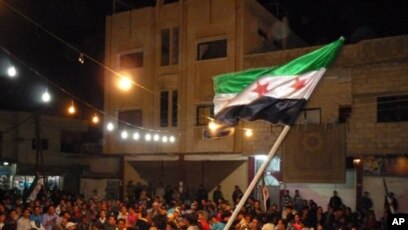Damascus seeks agreements with Israel (and Druze), but chaos reigns over the vote
For interim president al-Sharaa, ongoing negotiations between Syria and the Jewish state could yield results ‘in the coming days.’ The Golan Heights issue is excluded. Request for UN monitoring of territorial integrity and respect for airspace. Legislative elections postponed (perhaps) until the end of the month.
Damascus (AsiaNews) - Ongoing negotiations with Israel to reach a security agreement could yield results ‘in the coming days,’ although the talks do not address the issue of the Golan Heights because it is ‘premature’ and difficult to deal with. This was emphasised by Syrian interim president Ahmed al-Sharaa when he met with journalists in Damascus, stressing that an agreement with the Jewish state is a ‘necessity’.
At the same time, it will be up to the United Nations to monitor compliance with both the airspace and territorial integrity of the Arab nation, where there is no shortage of internal tensions and outbreaks of violence - from the Kurds in the north-east to the Alawites and Druze - which also affect Christians.
Syria and Israel are negotiating an agreement, with the mediation of the United States and Jordan, through which Damascus hopes to stop air strikes and begin the withdrawal of Israeli troops that have entered southern Syria.
Washington's goal is to reach an agreement before the UN General Assembly scheduled for next week in New York, which will bring together world leaders and in which al-Sharaa himself will participate. Since 8 December, the symbolic date of the overthrow of the previous regime of Bashar al-Assad, the Jewish state has carried out over a thousand attacks and 400 ground incursions in Syria.
For this reason, Damascus is seeking a disengagement similar to that of 1974, which created a demilitarised zone between the two countries after the Yom Kippur War the previous year. According to the interim president, an agreement was about to be signed last July; it was “four or five days away” from being signed, al-Sharaa explained, but developments in the southern province of Sweida - the scene of serious clashes between Bedouins supported by militiamen and Druze under the protective wing of Israel - derailed any agreement.
The presence of Syrian forces and the intervention of the Jewish state exacerbated the situation, with accusations of execution-style killings and heavy bombing from the opposing side, which even reached the presidential palace in the capital.
Still on the diplomatic front, Washington, Amman and Damascus have recently agreed on the division of powers in the Sweida region, where the memory of the more than 2,000 deaths, mostly civilians, including women and children, is still alive.
Syrian Foreign Minister Assaad Shaibani announced the agreement after consultations with US Special Envoy Thomas Barrack and his Jordanian counterpart Ayman Safadi. There is talk of a seven-point agreement, according to which the southern area remains formally under the authority of Damascus, but security is entrusted to Suleiman Abdel Baqi, head of a local militia, close to the government and hostile to Hikmat Hijri, a Druze religious and political leader with more autonomist positions.
Government forces would only control the main roads in the province, while the interior would be entrusted to Abdel Baqi's militias, which would be called upon to enforce “security”.
In addition to the issue of internal and regional security, there is also the matter of the legislative elections, the first since the fall of Assad, which were supposed to take place between 15 and 20 September but have been postponed (perhaps) until the end of the month, although there is no certainty about the timing.
This was reported by the official news agency Sana, according to which the central electoral committee, composed of members appointed by the president, announced the postponement “until September” for technical reasons, “because the candidacies are still being reviewed” by the local electoral committees.
The process is largely determined by al-Sharaa himself and the leaders of Hay'at Tahrir al-Sham (HTS) on the basis of Decree 142, with an Assembly composed of 210 deputies, a third of whom are appointed by the president.
Two-thirds will be elected at various levels from a pool of candidates chosen by local committees and divided into two categories: 70% technocrats and qualified academics and the remaining 30% representatives of the local community.
For some scholars and critics, the call to the polls is merely an attempt to give political and international legitimacy to the rise of the ruling group emanating from the extremist Islamic militias that brought about Assad's ouster. In addition to maintaining the status quo in a nation still far from the ideals of unity and pacification promised by the new leadership in the weeks following its seizure of power after the collapse of the previous regime.
After all, it is difficult to imagine an orderly vote in areas such as Tartus and Latakia, once Alawite strongholds, where HTS security forces and associated gangs are said to have killed more than 1,500 civilians in recent months.
This rift is even more evident because important provinces such as Sweida, as well as Hassaké and Raqqa in the north-east, with a Kurdish majority, where there are unresolved problems - in reality, autonomist and independence tendencies of “security” - are already excluded from the elections.
02/10/2025 19:28







.png)










